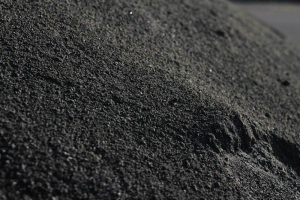
What is Silica from Rice Husk Ash?
Silica from rice husk ash refers to high-purity amorphous silica extracted through thermal treatment and chemical processing of rice husk ash. Unlike crystalline silica, this variant is non-toxic and highly reactive, making it ideal for applications in high-tech and industrial sectors. It can be processed into:
-
Precipitated silica
-
Activated silica
-
Nano-silica
-
Silica gel
Each variant has distinct applications and market demand.
Read Similar Articles: Rice Husk Based Projects
Industrial Applications of Silica
Silica has versatile industrial uses, such as:
-
Rubber and Tyre Industry – As a reinforcing agent
-
Paints and Coatings – Enhances durability and finish
-
Adhesives and Sealants – Improves bonding strength
-
Construction Chemicals – Used in concrete and high-performance cements
-
Electronics and Semiconductors – For insulation and chip manufacturing
-
Cosmetics – Used in exfoliants and creams
-
Agriculture – As a biofertilizer additive
These diverse applications ensure consistent market demand for processed silica.
Raw Materials and Their Availability
The primary raw material is rice husk ash, obtained from rice mills and biomass power plants that burn rice husk as fuel. Additional chemicals and materials required include:
-
Hydrochloric acid or sulfuric acid (for silica extraction)
-
Distilled water
-
Anti-foaming agents
-
Filtration aids
India, being one of the top producers of rice, provides a steady and cheap supply of rice husk ash—making raw material procurement highly feasible.
Manufacturing Process of Silica from Rice Husk Ash
The silica extraction process from RHA involves several chemical and thermal steps:
-
Collection and Screening – Rice husk ash is collected and filtered to remove large particles.
-
Acid Leaching – The ash is treated with acid to remove metallic impurities.
-
Washing – The leached ash is thoroughly washed to remove residual acid.
-
Precipitation – The ash is treated with alkali to convert it into soluble silicate, which is then precipitated.
-
Drying and Calcination – The silica gel formed is dried and calcined to achieve the desired grade and purity.
-
Grinding and Packaging – Final silica powder is ground to a fine consistency and packed for sale.
This process requires technical know-how but ensures high-purity output.
Related Feasibility Study Reports: Silica From Rice Husk Ash – Manufacturing Plant
Machinery and Equipment Needed
To set up a silica manufacturing unit, you’ll need:
-
Ash storage and feeding system
-
Acid and alkali reactors
-
Filtration and neutralization tanks
-
Dryers and calcination kilns
-
Silica grinding mills
-
Pollution control systems
-
Quality testing laboratory
A semi-automated setup improves production efficiency and consistency in product quality.
Infrastructure and Space Requirements
You’ll need approximately 10,000 to 15,000 sq. ft. of industrial space for a small to medium-scale plant. The layout should include:
-
Raw material storage
-
Chemical reaction chambers
-
Filtration and drying zones
-
Packaging unit
-
Wastewater treatment area
-
Administrative block
The facility must comply with environmental norms and maintain proper ventilation and worker safety measures.
Read our Books Here: Rice Cultivation and Processing Industry
Licensing and Regulatory Approvals
Being a chemical manufacturing process, several licenses are required:
-
MSME/Udyam Registration
-
Factory License
-
NOC from the State Pollution Control Board
-
Chemical storage and handling license
-
Fire and Safety NOC
-
Hazardous Waste Disposal Permit (if applicable)
Ensure all approvals are obtained before commencing commercial operations to avoid penalties and delays.
Investment and Financial Insights
A silica manufacturing plant using rice husk ash can be set up with an investment of ?1.5 to ?3 crore depending on the scale. Key capital requirements include:
-
Machinery and plant setup
-
Working capital for chemicals and wages
-
Utilities like water, power, and fuel
-
Quality control and lab setup
Profit margins range from 20% to 35%, and the return on investment can be expected in 2–3 years if raw material access and market linkages are strong.
Environmental Benefits
This business is not just profitable—it’s also environmentally beneficial. Converting rice husk ash, which is often discarded or burned in open fields, into silica:
-
Reduces air pollution
-
Decreases landfilling and waste dumping
-
Promotes zero-waste circular economy
-
Cuts down on the use of mining-derived silica
-
Aligns with global green manufacturing practices
This gives your business an edge in sustainability and brand value.
Market Scope and Target Clients
Your primary buyers would be:
-
Rubber and tyre manufacturers
-
Paint and coating companies
-
Construction chemical brands
-
Agricultural input suppliers
-
Pharmaceutical and cosmetic product manufacturers
List your business on platforms like IndiaMART, TradeIndia, and Alibaba. Also, consider forming partnerships with rice mills or biomass power plants for steady RHA supply and vertical integration.
Challenges and How to Overcome Them
Challenges:
-
Managing acid-based chemical processes
-
Ensuring consistent quality of RHA
-
Meeting safety and compliance standards
-
Setting up reliable distribution networks
Solutions:
-
Train staff thoroughly in chemical handling
-
Source ash from reliable and standardized mills
-
Invest in quality control at every stage
-
Market your silica as eco-friendly to attract global buyers
Future Growth and Innovation Potential
The demand for silica from rice husk ash is set to grow as industries shift toward green materials. Innovations in nano-silica production, biodegradable packaging materials, and biofertilizer blends using silica open up new market avenues. Governments and international agencies are also supporting waste-to-wealth projects, making it easier to receive grants or subsidies.
Thoughts
Starting a manufacturing business of silica from rice husk ash is a win-win—converting agricultural waste into a high-value industrial product. With relatively low raw material cost, strong demand across sectors, and increasing environmental awareness, this business offers excellent returns and long-term scalability. If you are an entrepreneur looking for a sustainable and profitable venture, silica production from rice husk ash should be on your radar.
Visit this Page for More Information: Start a Business in Rice Husk Based Products Industry
Ending Note:
There are many uses and applications for silica, including the production of paper, glass, water filtration, paint pigment, ceramics, dyes, and pigments. As was already established, silica is extremely porous, has a large specific surface area, and a peculiar purity.
Contact NIIR Project Consultancy Services if you’re seeking a business opportunity to produce silica from rice husk ash. In the realm of business, NPCS has made a name for itself as a reliable source of integrated technical consulting services. Planners, engineers, specialists, experts, financial experts, designers, and economists with in-depth knowledge of the sector administer NPCS.
Click here to send your queries/Contact Us
Reasons for Buying NIIR Report:
- Our research report helps you get a detailed picture of the industry by providing an overview of the industry along with the market structure and classification.
- Our report provides market analysis covering major growth driving factors for the industry, the latest market trends and the regulatory framework of the industry.
- Our Report provides an analysis and in-depth financial comparison of major Players / Competitors.
- Our Report provides indispensable buyers data with their company financials as well as the contact details, which can be an important tool in identifying the target customers.
- Our report provides forecasts of key parameters which help to anticipate the industry performance.
- We use reliable sources of information and databases.
See More Links:
- Start a Business in Asia
- Start a Business in Potential Countries for Doing Business
- Best Industry for Doing Business
- Business Ideas with Low, Medium & High Investment
- Looking for Most Demandable Business Ideas for Startups
- Startup Consulting Services
- Start a Business in Africa
- Start a Business in India
- Start a Business in Middle East





